In the Prime of Life - Idiom of the Day for IELTS
The idiom ‘in the prime of life’ means in the best years of one’s life, at the peak of one’s success or power. Learn the meaning and origin of this term with examples and exercises in this blog and achieve an 8+ IELTS band score in the speaking exam.
Table of Contents

Limited-Time Offer : Access a FREE 10-Day IELTS Study Plan!
Age-related topics frequently appear across IELTS, from discussions about generational differences to health and ageing. One powerful and common idiom in IELTS Speaking that can instantly enrich your answers is ‘in the prime of life’. This expression is especially useful when describing people at their physical, intellectual, or emotional peak, and it can make your descriptions more expressive, mature, and memorable.
This blog explores the meaning, origin, and IELTS-specific usage of the 'in the prime of life' idiom, along with exercises to solidify your understanding.
In the Prime of Life Idiom: Meaning
The idiom ‘in the prime of life’ refers to the period when a person is at their peak physical strength, mental clarity, or overall vitality, often in early adulthood or middle age. It suggests the individual is healthy, active, and full of potential.
It can be used in both positive and tragic contexts, such as when referring to premature death or unexpected illness during one’s prime.
Origin of the Idiom ‘In the Prime of Life’
The word ‘prime’ comes from the Latin prīmus, meaning first or best. Historically, ‘prime’ was used to refer to the early morning hours, symbolising freshness and potential.
Over time, ‘prime of life’ came to represent the peak period of a person’s abilities and well-being. Though idiomatic, this phrase is also found in formal writing and literature, giving it versatility in both academic essays and personal anecdotes.
In the Prime of Life Idiom Usage
Simply learning the meaning and the origin of the in the prime of life idiom might not be helpful if you do not know how it use it appropriately. So, let us go through some examples that will help you learn the idiom effectively and achieve your desired IELTS band score.
In the Prime of Life Idiom: Examples in Everyday Usage
The common idiom, 'in the prime of life', is frequently used in daily conversations in a variety of ways, some of which will be discussed in more detail below.
- She began her medical career in the prime of life, driven by energy and ambition.
- That boy had so much to look forward to, but he was killed in the prime of life.
- The good health of one’s youth can carry over into the prime of life.
- A heart attack in the prime of life struck him down.
- Many people in their thirties are in the prime of life, balancing work, family, and self-care.
- Social media often showcases influencers who appear to be in the prime of life.
In the Prime of Life Idiom Usage in Literature & Academic Writing
Below are real-world examples of this idiom from formal writing and literary sources, properly contextualized:
- Thomas Hardy – Tess of the d’Urbervilles (1891)
“He was still in the prime of life, and his energies, though misdirected, were enormous.”
- Charlotte Brontë – Jane Eyre (1847)
“He was perhaps five-and-thirty; so many years, sound and strong, in the prime of life and manhood.”
- The New York Times – Political Analysis
“In the prime of life and political influence, the senator reshaped health policy for decades.”
- Barack Obama – The Audacity of Hope
“Many of the men I saw behind bars were in the prime of life—young, strong, but without direction.”
- Cambridge University Press – The Victorian City: Everyday Life in Dickens’ London
“Clerks, often in the prime of life, populated the counting-houses of the city, aspiring to rise through sheer perseverance.”
- Oxford Academic Journal – Medical Humanities
“The loss of individuals in the prime of life due to preventable diseases is not just tragic but avoidable.”
Are you having difficulty improving your vocabulary for IELTS?
In the Prime of Life Idiom: Detailed Usage in IELTS Contexts
The idiom, in the prime of life, fits naturally into IELTS Speaking responses, especially when you are sharing personal experiences or opinions on aging or life. While idioms should be used carefully in IELTS Writing Task 2, ‘in the prime of life’ is especially effective in essays on health, lifestyle, ageing, or youth issues. It helps you make vivid contrasts or convey emotional depth.
IELTS Speaking Part 1 – Health
- Q: Do you think it’s important to exercise regularly?
- A: Absolutely. Especially when you're in the prime of life, building healthy habits can lay the foundation for long-term wellness.
IELTS Speaking Part 2 – Describe Someone You Admire
“My cousin is in the prime of life. He runs a successful business, volunteers on weekends, and still finds time to stay fit. His drive and balance inspire me to live with more intention.”
IELTS Speaking Part 3 – Age and Society
- Q: Do you think younger people today live differently from those in the past?
- A: Yes, definitely. Today’s youth enter adulthood much later, and many delay key milestones even while they’re in the prime of life—perhaps due to social and financial pressures.
IELTS Writing Task 2
- Essay Topic: Some people think people today live longer but not healthier lives.
- Sample Use: Although medical advances have increased life expectancy, many people face chronic illnesses even in the prime of life, which challenges the notion of improved quality of life.
In the Prime of Life: Practice Exercises
The exercises below will help you learn the correct usage of the idiom ‘in the prime of life’, allowing you to understand its meaning and application.
Exercise A: For each sentence below, explain whether the person is in the prime of life or not.
1 Despite being 25, he spends all day in bed and avoids social interaction.
2 She’s 32, runs marathons, manages a team, and travels regularly.
3 At 55, he launched a company and is more active than he was in his thirties.
4 She’s 20 and recently diagnosed with a serious chronic illness.
Exercise B: Use the idiom “in the prime of life” to rewrite these simple sentences into more expressive ones:
1 He died at a young age, which made it even more tragic.
2 She's at her best professionally and physically right now.
3 It’s sad to see him struggling so much while he’s still young.
4 She is an ambitious woman in her early thirties.
Aiming to wow your IELTS examiner with your vocabulary?
Begin with our Vocabulary for IELTS!
In the Prime of Life: Answer Keys for Practice Exercises
Now, compare your responses to the answer key provided below to determine your understanding of the idiom ‘in the prime of life’.
Exercise A
1 Not in the prime of life. (Although he is young in age, his physical inactivity and social withdrawal suggest he is not living to his full potential, which contradicts the meaning of being in the prime of life.)
2 In the prime of life. (She demonstrates peak physical fitness, professional success, and high energy—all key characteristics of someone in the prime of life.)
3 In the prime of life. (Despite being older than the conventional ‘prime’, his high activity levels and mental sharpness indicate he is experiencing his personal prime.)
4 Not in the prime of life. (Although she is chronologically young, the illness undermines her vitality, preventing her from fully living or functioning at her best.)
Exercise B
1 He passed away in the prime of life, making the loss all the more heartbreaking.
2 She is in the prime of life, excelling both professionally and physically.
3 It’s heartbreaking to see him struggle during what should be the prime of his life.
4 She’s an ambitious woman in the prime of life, full of energy and purpose.
To conclude, the idiom ‘in the prime of life’ is a powerful linguistic tool when describing people at their peak health, productivity, or beauty. In the context of IELTS, idioms like this help demonstrate native-like fluency, but only when used in the right context. Practice with real scenarios, experiment in your speaking responses for IELTS Speaking practice tests, and analyse tone differences using contrast-based exercises like the ones above.
Useful Links:
- Cash-flow Problem - Idiom Of The Day For IELTS
- Look like a Million Dollars - Idiom of the Day for IELTS
- The Gift Of The Gab - Idiom of the Day for IELTS
- Stuck in a Rut – Idiom of the Day for IELTS
- IELTS Speaking Lessons: Improve Fluency, Vocabulary & Band Score
- 75+ Common English Words Used in IELTS Speaking Test
- IELTS Pronunciation Guide 2025
Explore IELTS Resources

Start Preparing for IELTS: Get Your 10-Day Study Plan Today!
Check out other Idioms

Haniya Yashfeen
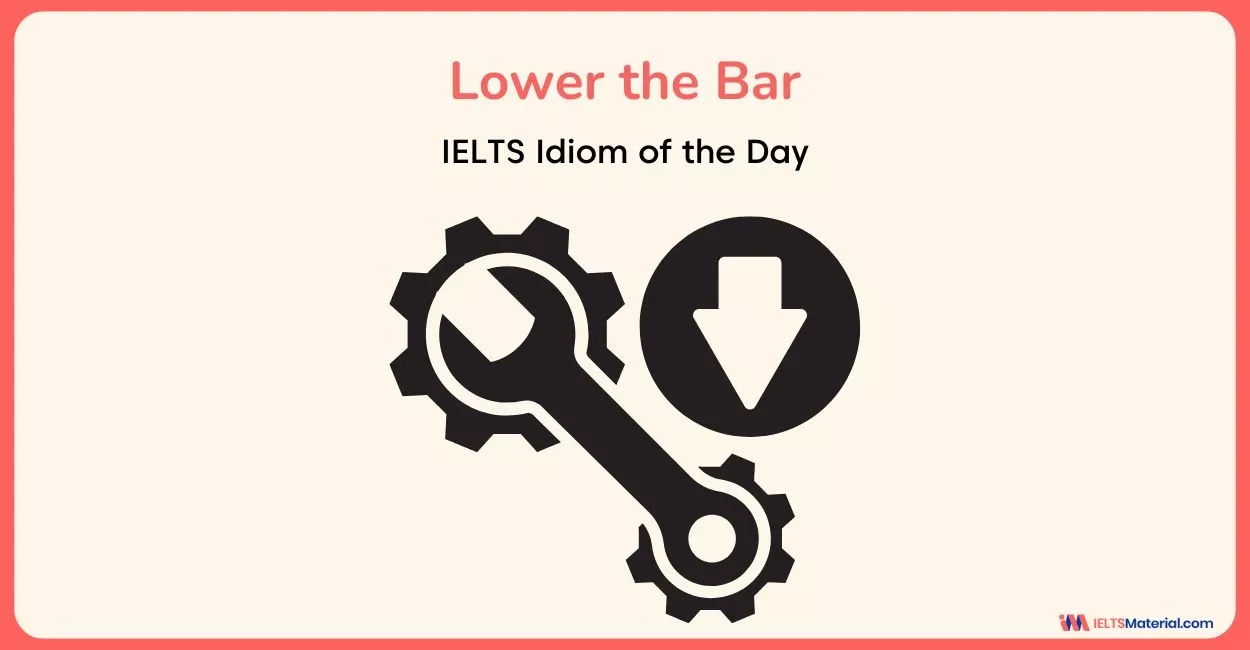
Haniya Yashfeen
Recent Articles
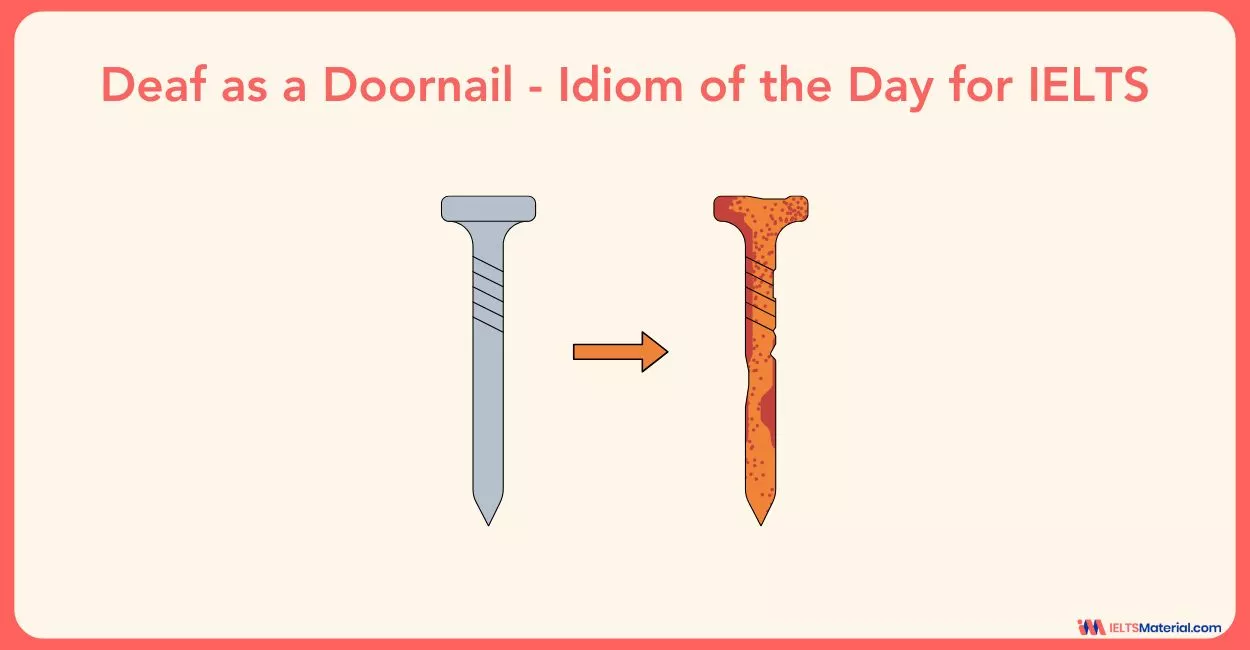
Kasturika Samanta

Prity Mallick

Nehasri Ravishenbagam
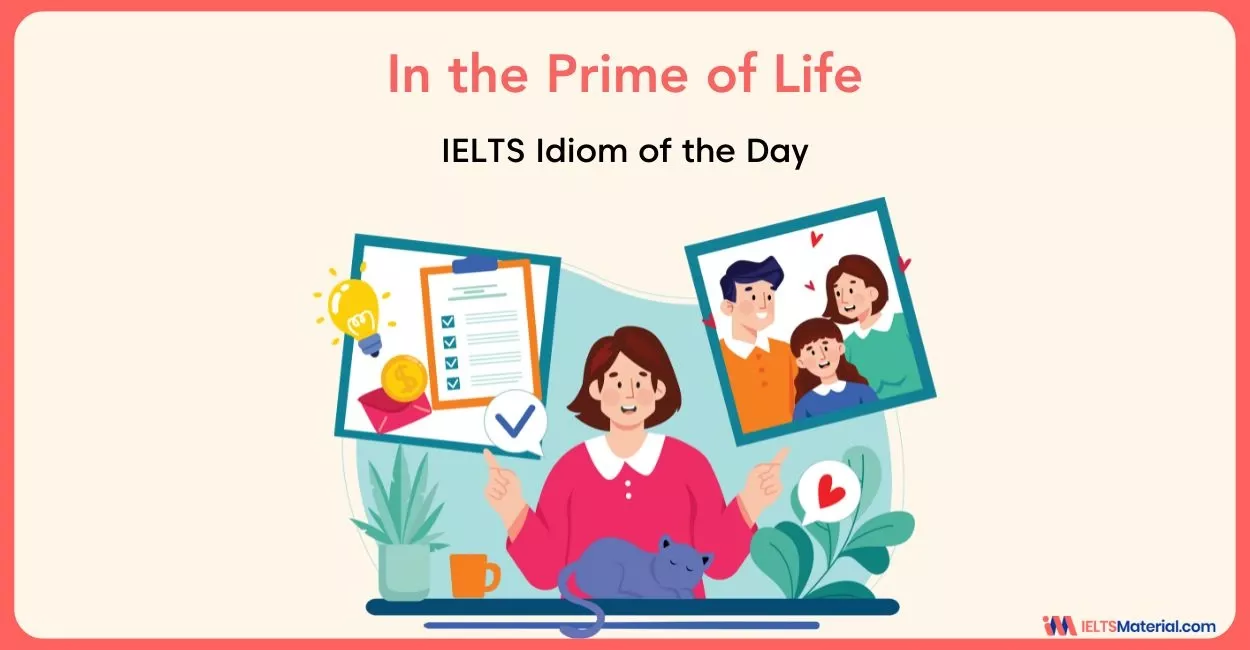

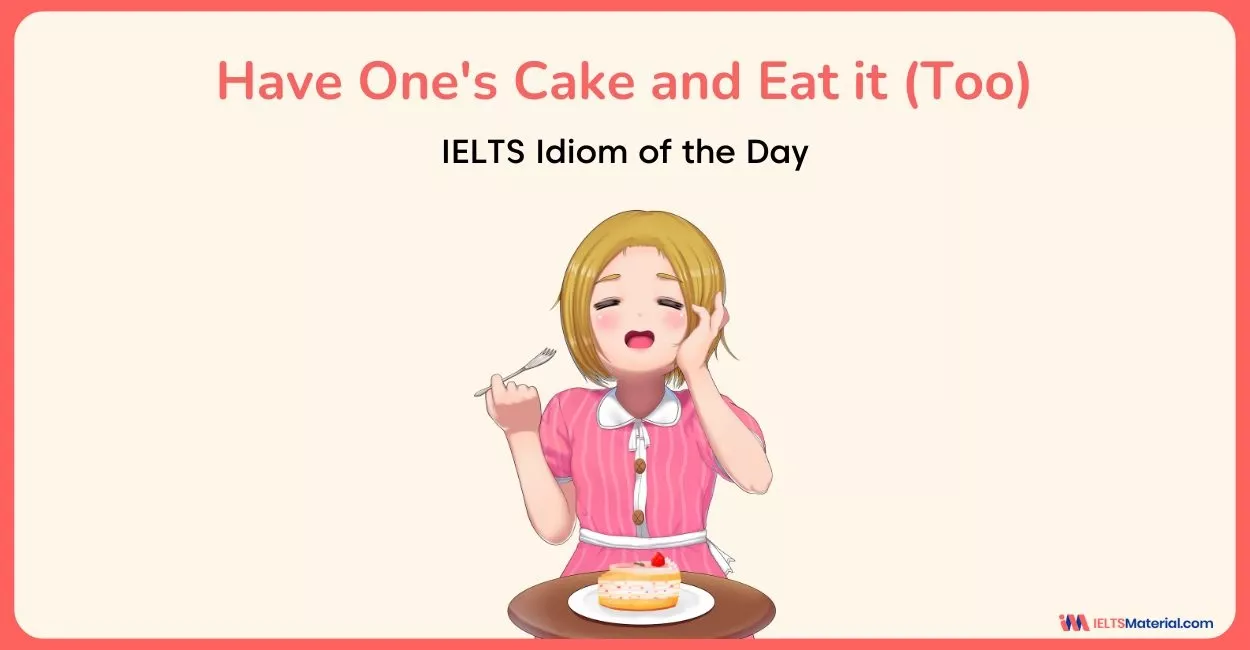
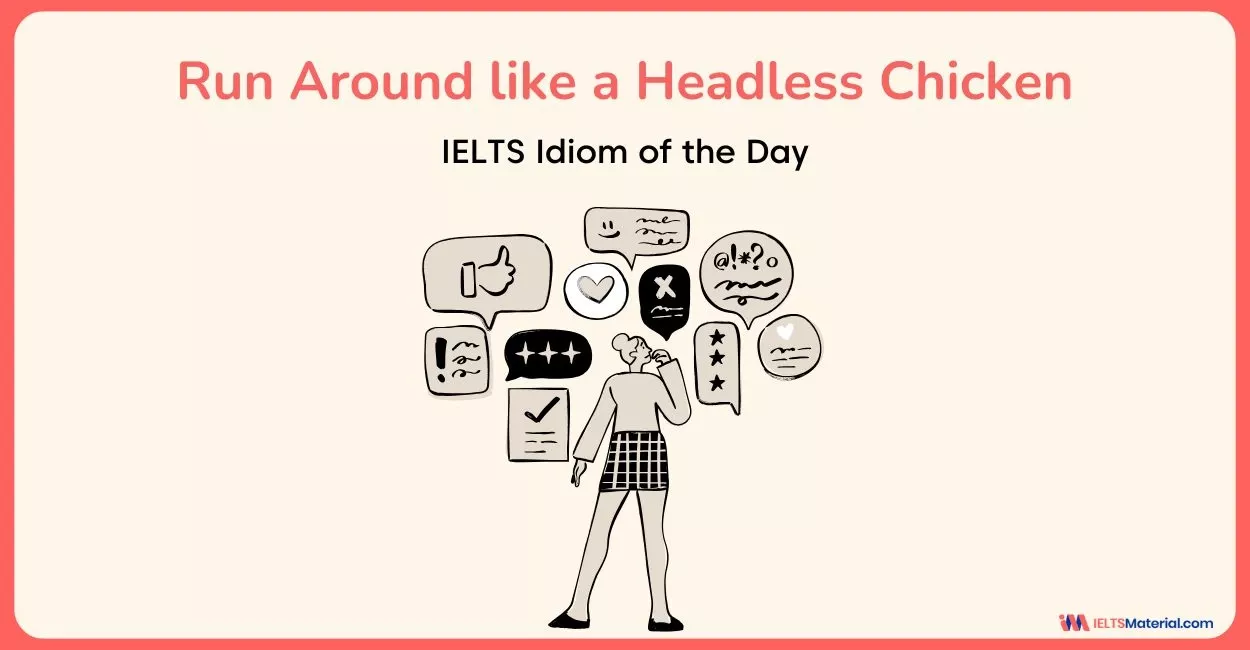
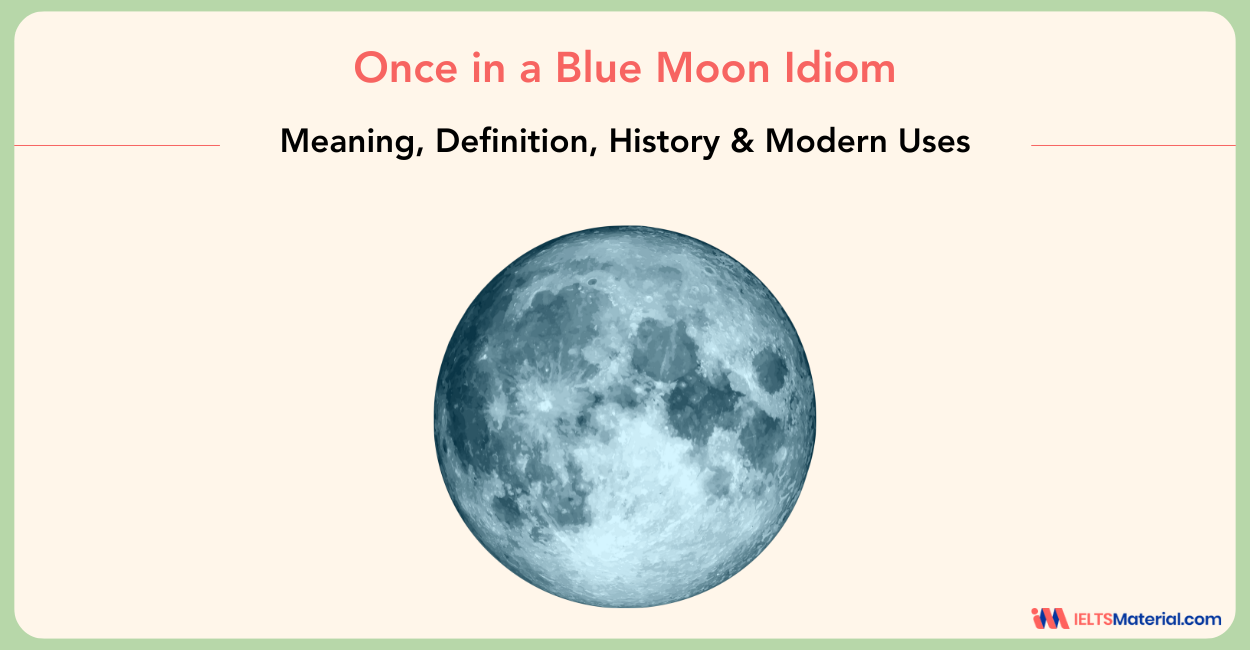


Post your Comments